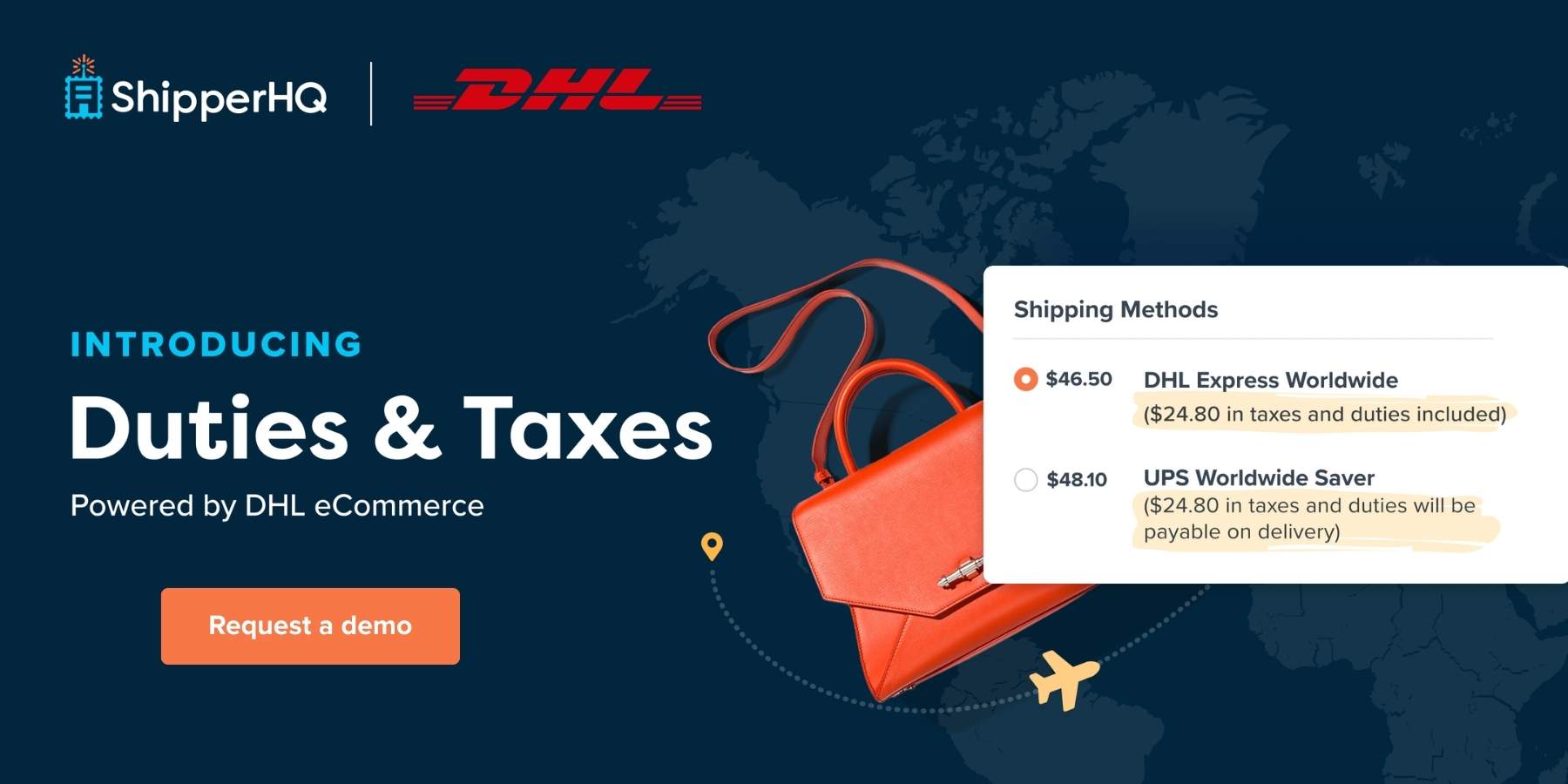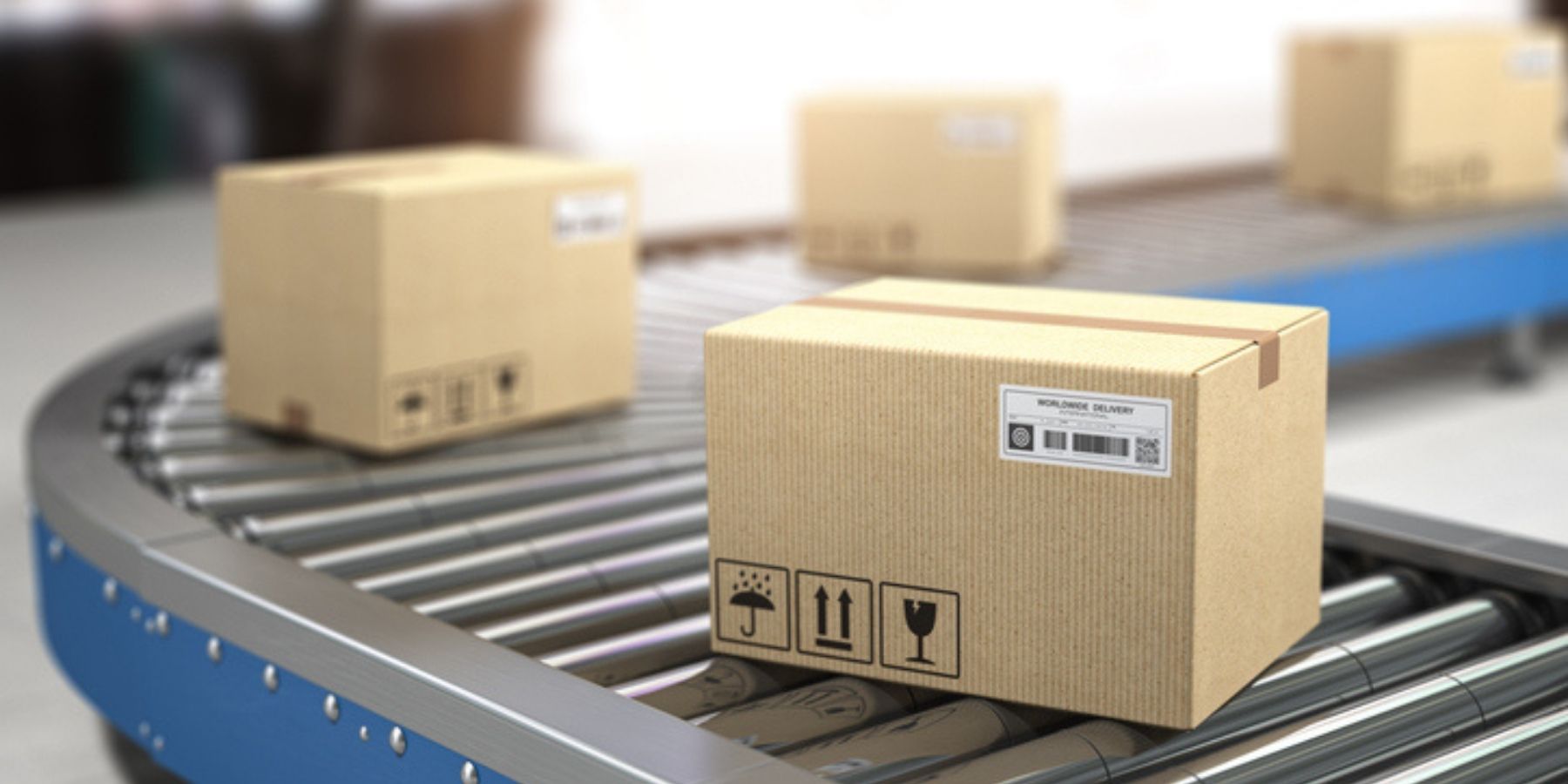What does DDP (Delivery Duty Paid) or DDU (Deliver Duty Unpaid) mean? Here’s what you need to know to handle your international logistics correctly.
DDP and DDU are terms you’ll probably see pop up when shipping goods cross-border. They are both statuses for international shipments that specify which party is responsible for duty payments. In other words, who will be paying import fees for an order before it’s out for delivery?
DDP vs. DDU: What’s the difference?
DDP is a shipping term that stands for “delivered duty paid.” This means you, the seller, will pay all customs clearance, duties, and taxes associated with shipping a product into another country. Generally speaking, the logistics providers you work with (think UPS, FedEx, DHL) do the heavy lifting on customs & duties and bill you the total before an item is imported.
DDU is a shipping term that stands for “delivered duty unpaid.” This means your buyer is responsible for paying customs clearance, duties, and taxes associated with the purchase. Your buyer will be contacted by a customs broker. And they will be required to pay duties upon delivery. DDU is also referred to as DAP (Duties at Place).
What do DDP and DDU mean in shipping, and what does it have to do with my eCommerce business?
When shipping cross-border, many countries impose a duty or tax on a shipment. As an online seller, deciding whether you want to pay the duty or pass that cost along to your customer is up to you.
Whether a duty or tax is required depends on factors like shipping origin, declared value of an order, shipment purpose, and shipping destination. Since every country has its own set of rules, regulations, and import taxes, things can get complicated quickly.
For example, the U.S. Harmonized Tariff Schedule (i.e., the U.S. government document spelling out what customs and duties are owed on what products) is 3,863 PDF pages long and updated annually. Ouch.
DDU vs. DDP: Which should you use to deliver to your international customers?
The short answer is: it depends.
Sticking with DDU shipments may seem more cost-effective since no processing fees are involved on top of the duty. However, the hassle of explaining why a customer needs to pay more – on top of their order and shipping costs – can cause unnecessary confusion.
Benefits of Shipping DDP
If you choose to ship DDP, you pay the cost for shipping, VAT or sales tax, customs, duties, etc. Because the duty has been paid upfront, your customer can avoid the delay and hassle of paying a customs broker. Your carrier will bill you for the customs costs.
However, this still leaves you with the expense. You may take the cost on yourself, pass this on at checkout, or include it in your item’s price.
Shipping DDP also has advantages. A customer’s shipment will arrive more quickly because it isn’t delayed in customs. And as eCommerce matures, savvy online shoppers are getting more accustomed to paying customs and duties on cross-border purchases.
Disadvantages of Shipping DDP
Shipping DDP offers benefits such as quicker delivery and the convenience of upfront payment for customs fees. However, there are potential drawbacks. Sellers bear the expense of customs clearance, duties, and taxes. This can eat into your profit margins unless you pass it on to the customer by increasing the item’s price or charging separate fees at checkout. You may incur unexpected expenses if you miscalculate or underestimate the customs costs.
Benefits of DDU Shipments
If you choose to ship DDU, your customer is ultimately responsible for paying customs and duties.
Your carrier will deliver the package to a customs broker in your customer’s home country. A customs broker can be your carrier, the local post office, or another company that handles customs fees. Your customer is then responsible for paying the duty before they can take final possession of the package.
Shipping DDU has advantages when it comes to winning a sale. Without taxes and duties, your price-conscious customer sees a lower price at checkout.
Disadvantages of Shipping DDU
Although DDU shipments may attract price-conscious customers with the allure of lower upfront costs, there are risks associated with this approach. One key drawback is the potential for confusion and negative customer experiences. If you fail to communicate that taxes and duties are due upon delivery, customers may be caught off guard and feel blindsided by unexpected fees.
Moreover, if customers delay picking up the package or fail to pay the required duties, storage fees and the possibility of order cancellation become concerns. As the seller, you would cover return shipping fees, fines, and penalties.
It is essential to carefully weigh these disadvantages against the advantages of each shipping method. You must consider the specific needs of your eCommerce business and customer base before implementing DDP or DDU on your website.
Implementing DDU or DDP Shipping: Considerations for Your eCommerce Website
Implementing DDU or DDP shipping on your eCommerce website requires careful consideration of your international logistics. DDP, or Delivery Duty Paid, means that as the seller, you take responsibility for paying all customs clearance, duties, and taxes associated with shipping a product to another country.
This option offers a smoother process for customers, as they can avoid paying a customs broker before receiving their package. DDU, or Delivery Duty Unpaid, shifts the responsibility to your buyer. They will be contacted by a customs broker and must pay duties upon delivery.
Ultimately, the choice between DDU and DDP depends on the products you ship and your customer’s willingness to pay taxes and duties upfront. Working with a partner that calculates these costs automatically and provides transparent information at checkout can simplify the process for you and your customers.
Key Differences Between DDU and DDP
When deciding whether to implement DDU or DDP shipping on your eCommerce website, it’s essential to understand the critical differences between the two approaches. Consider the following points:
DDP (Delivered Duty Paid):
- The seller takes responsibility for paying customs clearance, duties, and taxes.
- The duty is paid upfront, ensuring a smoother process for customers receiving the package without the hassle of paying a customs broker.
- The seller incurs the expense of customs costs and must decide whether to absorb it, pass it on at checkout, or include it in the item’s price.
- Faster delivery times are possible as the package avoids delays in customs.
- Customers are becoming more accustomed to paying customs and duties on cross-border purchases.
DDU (Delivered Duty Unpaid):
- The buyer is responsible for paying customs clearance, duties, and taxes before receiving the package.
- The carrier delivers the package to a customs broker in the buyer’s home country, who handles the customs fees.
- Customers may see a lower price at checkout due to excluding taxes and duties.
- Please clearly communicate that taxes and duties are due on arrival to avoid customer confusion and negative experiences.
- Delays in picking up the package or non-payment of duties may result in additional storage fees and the risk of order cancellation.
- Sellers are liable for return shipping fines and penalties if customers abandon the shipment at customs.
Understanding these key differences will help you decide which shipping method aligns best with your business model and customer expectations. Consider factors such as your product mix, customer preferences, and the potential impact on your profitability.
Introducing ShipperHQ’s New Feature: Duties & Taxes
Our latest Duties & Taxes feature, powered by DHL eCommerce, automatically calculates accurate duty and tax at checkout. It integrates seamlessly with any carrier and any eCommerce platform, displaying duty and tax calculations within the shipping methods portion of checkout.
You can choose from several Duties & Taxes configurations, including DDP or DDU. It will ultimately depend on the mix of products you ship internationally and how receptive your customers are to paying taxes and duties upfront or dealing with customs brokers after the fact.
Need more information about this feature or want to discuss DDP vs. DDU? Request a demo to learn more.

FAQs About International Shipping
Is DAP the same as DDU?
Yes, DAP (Delivered at Place) is the same as DDU (Delivered Duty Unpaid).
What role does DDP play in returns?
DDP can complicate returns as the seller has already paid customs fees upfront, potentially leading to complex and costly processes for handling return shipping and customs clearance.
Does DDP include unloading?
Including unloading fees may vary based on agreements between the seller, carrier, and destination country. It’s important to clarify with your logistics provider.
What’s DDP’s impact on delivery speed?
DDP can lead to faster delivery times since the customs fees have been paid upfront, allowing the package to avoid delays in customs clearance.
How does the choice of DDP or DDU affect profits?
The choice between DDP and DDU can impact profits. DDP involves the seller bearing customs costs, potentially reducing profit margins. DDU shifts the duty payment to the buyer, offering lower upfront costs but posing risks such as storage fees and return shipping expenses for the seller.
Please note that specific circumstances and agreements may vary. Therefore, consulting with logistics partners or shipping experts is advised for the best approach for your eCommerce business.






